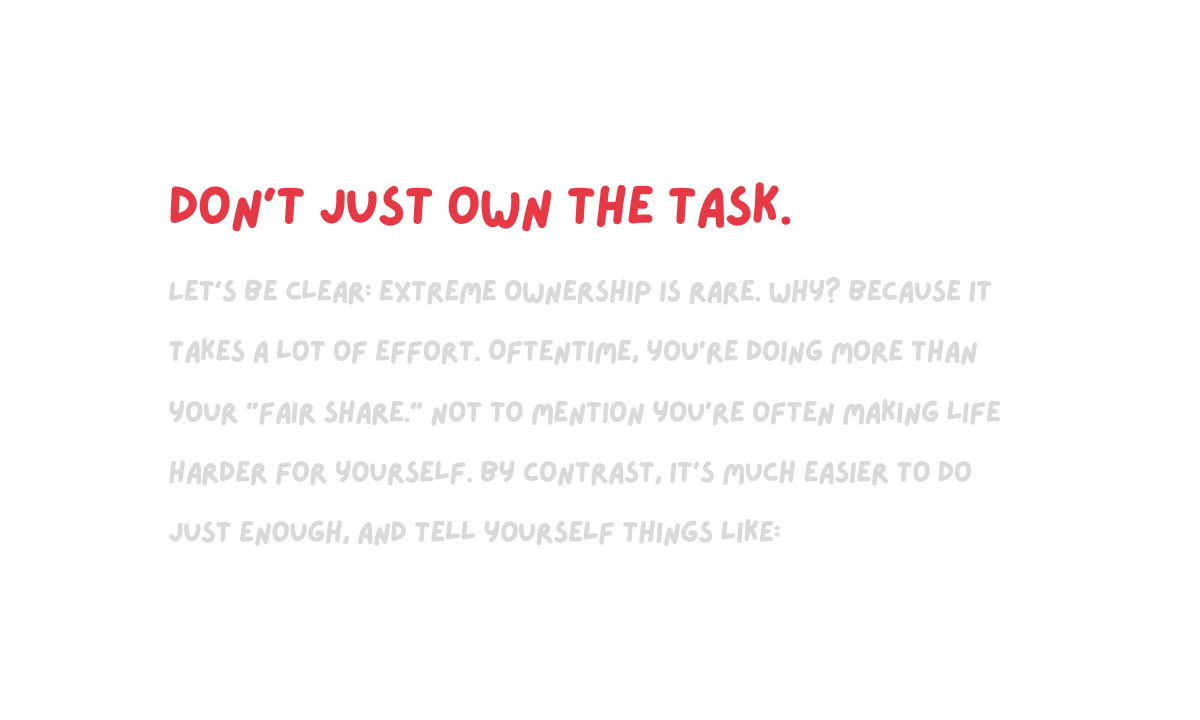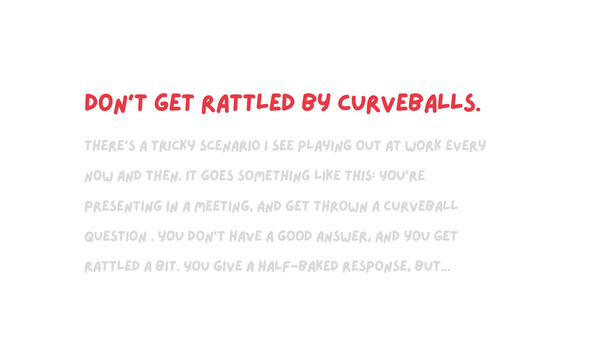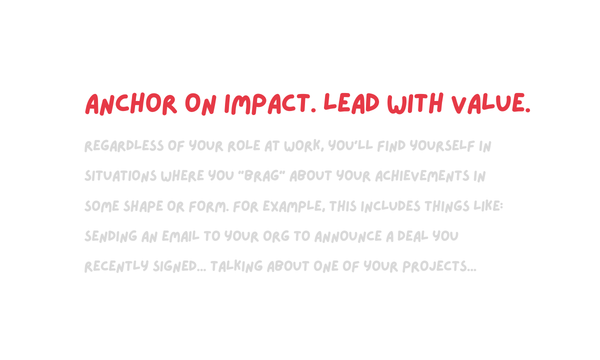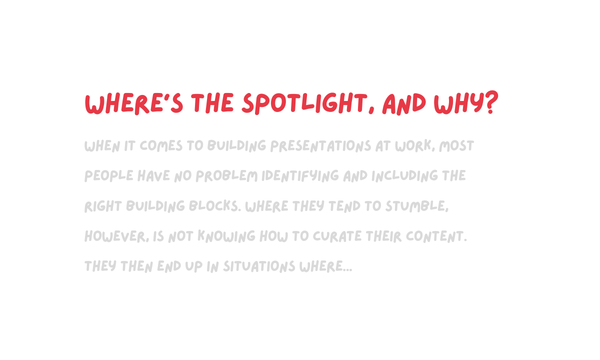Extreme ownership is the ultimate differentiator

Here's a story from early on in my career – see if you can spot what's wrong with it.
At the time, I had received an opportunity to travel to Australia for work. This was a rather last-minute trip, however, and flight prices were already on the rise.
So as part of trip planning, my manager asked:
"Hi Herng – please take a look at flight ticket options for us, and get a sense of what our options are."
Easy peasy. So I went to Expedia, typed in our destination and dates, and screenshotted a bunch of itinierary combinations.
I then included the screenshots into an email, added a short summary of all the airlines and corresponding prices, and sent it off to my manager.
Then I grabbed a coffee and went on about my day.
👋 Join 5000+ readers and subscribe to Herng's Newsletter for free:
The post-mortem, many years later
It's now more than a decade later, yet I still remember this incident. And not in a good way.
Because while I I owned the "task" to perfection? I did not truly own the "objective." And I added very little value as a result.
What was the difference? Well, in this case:
- The Task = My manager's verbatim guidance ("Give me a summary of ticket prices")
- The Objective = The ultimate outcome we were trying to achieve ("Find us an itinerary that achieves prudence, doesn't waste time, and maximizes our time with clients")
And this is what extreme ownership is all about. You're not just following orders or executing a particular ask.
Rather, you're pushing yourself to see the ultimate endgame – AND asking yourself how you can contribute accordingly.
In this case, had I understood that concept, I would've done more than just send screenshots.
Instead, I would've done things like:
- Clarify the client meetings involved on this trip and their relative importance (to figure out if any implications on arrival or departure times)
- Develop a recommendation on which itinerary presented the optimal trade-off (instead of simply sending a bunch of screenshots)
- Offer to chat live soon to help make the team a call before ticket prices rose further (as if I were paying for the tickets with my own money)
The difference is night and day.
A couple more examples
Once you realize the difference between owning the "task" vs. the "objective," you'll see opportunities to demonstrate extreme ownership everywhere at work.
For example, imagine that you receive the following brief: "Analyze this past quarter's revenue trends."
❌ Here's what happens when you execute the task, but not the objective:
- "Here's the chart you asked for. Let me know if any questions."
✅ By contrast, here's what happens when you demonstrate extreme ownership:
- "What hypotheses are we trying to validate?"
- "Who's the audience? How familiar are they with the business?"
- "I also have access to 2 other datasets that can help us sense-check our findings: would it be helpful for me to deliver a consolidated view?"
Let's look at another example.
Imagine that you receive the following brief: "Ask all our sales managers to submit their revenue plans so we have visibility."
❌ When you execute the task, but not the objective:
- "Here's 2 out of the 5 plans. I emailed them a week ago but only 2 of them replied. I chased them 2 more times but still got no response."
✅ By contrast, when you demonstrate extreme ownership:
- "I'm having trouble getting people to respond despite multiple rounds of chasing. I suggest that we meet them live to address some of their concerns, as they are probably worried about how we'll use their inputs."
- "Also, besides consolidating the materials, I've already identified a few themes that have emerged from the plans we've received. I've turned it into a one-pager that we can use to socialize with our key stakeholders."
See the difference?
👋 Subscribe for free to get Herng's newsletter directly in your inbox.
The one thing that determines all things
Let's be clear: extreme ownership is rare.
Why? Because it takes a lot of effort.
Oftentime, you're doing more than your "fair share." Not to mention you're often making life harder for yourself.
By contrast, it's much easier to do just enough, and tell yourself things like:
- "I'm sure someone else will figure this out; I should just let it go."
- "This is not really within my scope; I don't need to overreach."
- "Why would I go the extra mile for stuff I'm not getting credit for?"
So why does it make sense to demonstrate extreme ownership? Well, it turns out that it does pay off. You don't have to do it purely out of altruism.
Specifically, here are some good things that can happen:
#1 People want to work with you.
People know that they don't have to spoonfeed you everything or keep checking in on you. They simply have to align on objectives with you – and you'll figure out the rest.
You make life easier for everyone else.
#2 People trust you more.
People know that you are fully invested in the team's success, and that your incentives are highly aligned with theirs.
They will then trust you with important information and context.
#3 You'll get more opportunities.
You're more likely to receive opportunities that are "beyond your paygrade," because you've demonstrated both the skill and will to deliver beyond your scope.
And success tends to beget success – thus starting the upward spiral.
Some practical tips
Assuming you're bought into the concept, now let's talk about how to turn it into action.
Here are a few practical tips you can leverage to ensure you demonstrate extreme ownership:
#1 Ask a lot of questions.
People with true ownership are curious. They feel that they are equally (if not more) invested in the objective, and they will ask as many questions as needed to get to the bottom of things.
Corollary to this: if you enlist someone's help and they ask very few questions or demonstrate very little curiosity? Either you're not selling the vision enough, or they're perfectly comfortable just completing the task and moving on.)
#2 Tell yourself that the buck stops with you. Even if it doesn't.
Look, the truth is this: most people at work are not irreplaceable.
But in your mind, however? Never let that dictate how you operate.
Instead, tell yourself that the buck stops with you. Don't assume someone else will pick up the slack. Don't assume someone else must have "thought of it" already.
And if you're not sure if you're overreaching? Do everything you can to clarify. Ask questions and chase down people until you get what you need.
Just don't do nothing.
#3 Tell yourself that you own half the company.
Think of yourself as a majority shareholder as much as you can. Pretend that every dollar that the company makes/loses has a direct impact on your bank account.
You'll find yourself suddenly asking very different questions and taking very different actions.
#4 Practice one phrase often.
Let's be clear about one thing: Being a true owner does NOT mean that you need to figure out everything on your own, 10 steps ahead of everyone else, in order to prove your sense of ownership.
If you do that – you won't go very far before you burn out. Things will backfire.
Instead, in reality, you will often have more questions than answers. And when that happens, make it a reflex to say:
"I don't know, but I can find out."
It's a simple phrase, but it reminds us that nothing is a deadend.
Instead, most things can be solved (or at least see major breakthroughs) by someone simply having the will to keep unpeeling the onion, until it leads to somewhere useful.
👋 Join 5000+ readers and subscribe to Herng's Newsletter for free:
Quick Recap
- Extreme ownership means that you focus on landing the objective, not just the task.
- Remember, however, that this doesn't mean you do everything by yourself. Asking for help is NOT a sign of weakness.
- Rather, this simply means that you stay curious, creative, and committed to finding a solution. Even if it's "beyond your scope."


